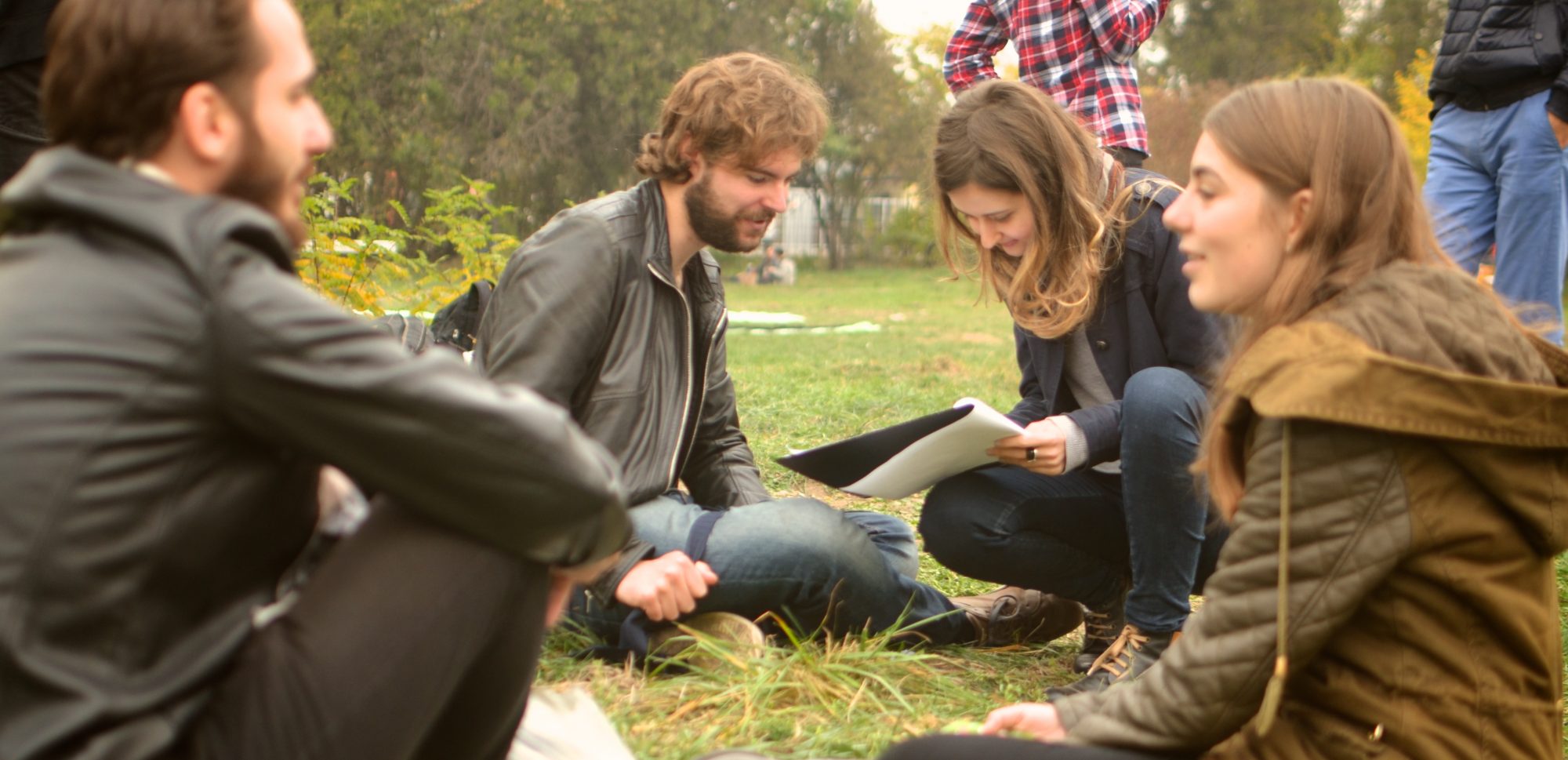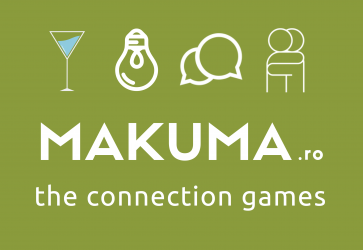
We’re hiring, see below for details!
Our ‘why’
Our mission is to help as many people as possible to have happy, healthy relationships.
Strong, supportive relationships are one of the keys to a happy life. When we feel loved and accepted, we can feel calm and positive about our future. We can be creative, innovate and have a positive impact on other people and the world.
The challenge is that when we’re feeling down, our relationships suffer. Unhealthy or unhappy relationships can contribute to us feeling anxious and drained. We can find ourselves trapped in a vicious cycle.
It’s a cycle we want to help people break out of. Makuma is developing digital services to help people improve their relationships through personal support and simple, fun, practical activities. These activities help with learning healthy relationship skills that nurture deep, fulfilling human connection.
We believe that this foundation of strong, authentic, compassionate relationships is essential for tackling the environmental crisis and building the world we want to live in.
Where did this all begin?
Throughout high school and university, Jonathan was somewhat shy, feeling anxious at parties and running through conversations beforehand in his mind in an effort to say the ‘right thing’. Like everyone else, he’d love to have friends and lovers, but it always seemed like a bit of a struggle.
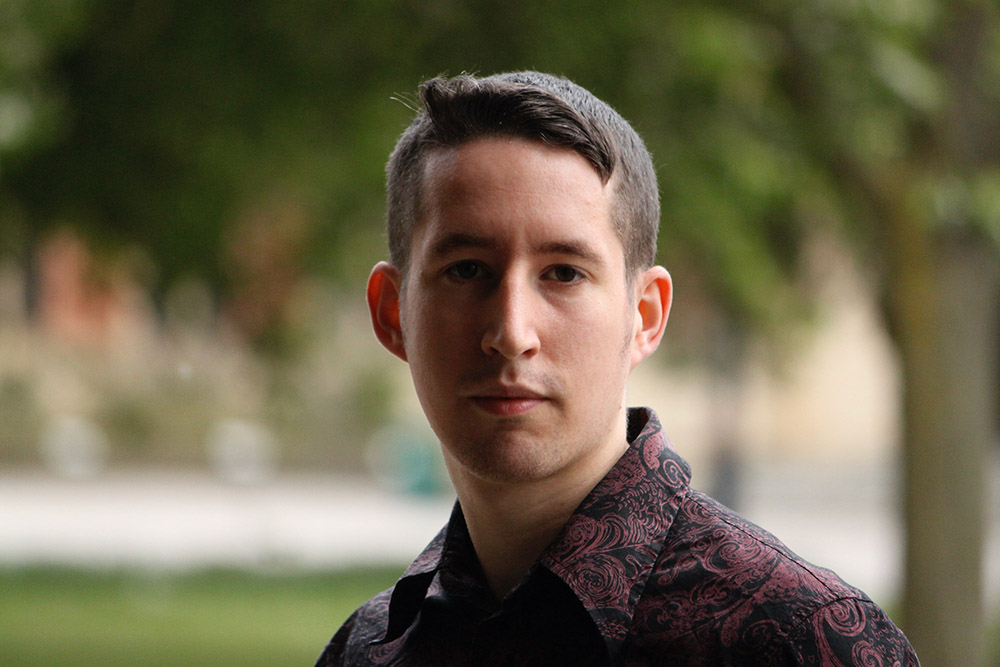
Luckily, his curiosity for people and cultures inspired him to jump on the train and explore every corner of Europe. He loved to tag along in the life of his generous CouchSurfing hosts, meeting their friends and participating in whatever they enjoyed doing. Instead of getting stuck in the normal smalltalk conversations, he often had the opportunity to experience their lives and get to know them on a deeper level, even though they only spent a few days together.

In 2008, he attended his first Climate Camp and was astonished at what a group of motivated people can accomplish without anybody being in charge. Instead, the glue that seemed to hold it all together was a genuine care for each other, based on shared values and purpose. It was noticeable that there was a culture of serving others: people would wander around looking for problems to solve and people to help. It was a radically different atmosphere to the average corporation, and showed the real, tangible impact of caring relationships.
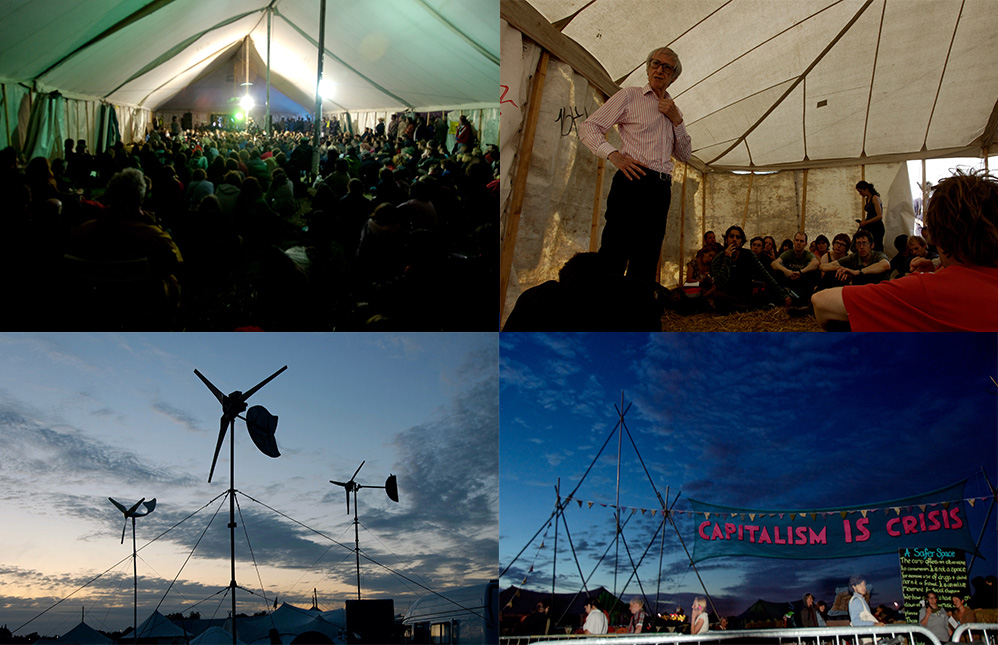
Back home, Jonathan always wished there were more social situations where he could feel relaxed, rekindle his curiosity for people even when he’s at home, and be part of a group that truly cared about each other.
Years later, in 2016, he stopped wishing and decided to take action. Together with two volunteers, he set out to design a relaxed social environment in which everyone can feel at home. Makuma was born.
How did Makuma look in the beginning?
From the moment people walked through the door to these “Makuma connection games”, players were greeted by facilitators and led through a series of simple games designed to ease players into opening up and expressing their thoughts and feelings. By encouraging players to try to be curious rather than judgemental, we created a space in which everyone could feel a little more free to just be themselves.
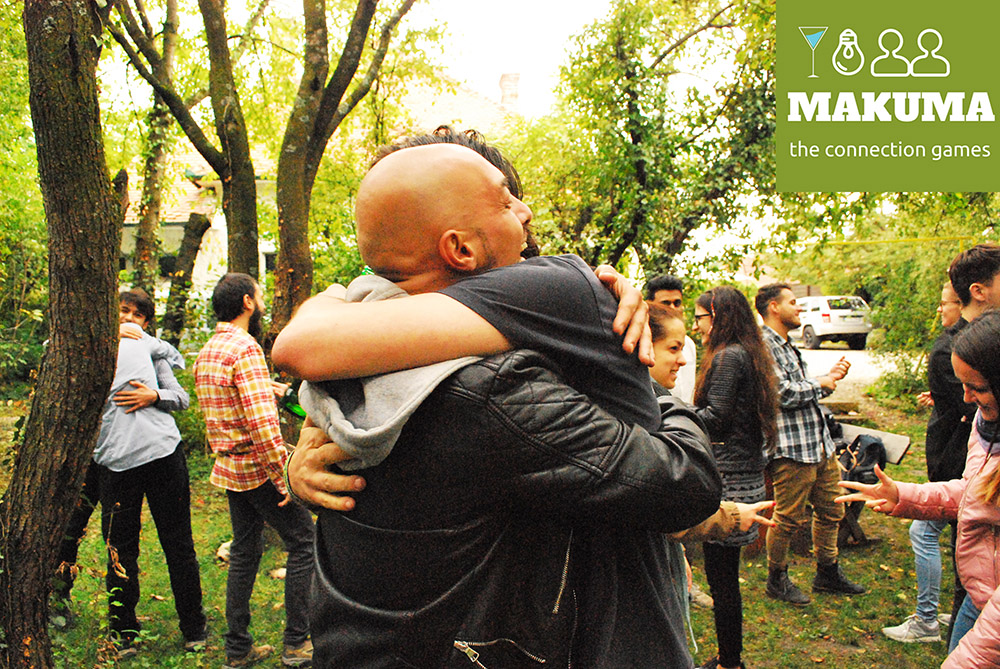
Feedback was positive from the beginning, with many participants sharing that they’d never experienced anything similar, and that although it had sometimes taken months for them to find the courage to attend, they were really glad that they did.
The events steadily grew through word of mouth over the next couple of years, until we regularly had over 100 participants each month, supported by a team of 11 facilitators. The idea spread internationally, with events happening in 4 cities in 3 countries.
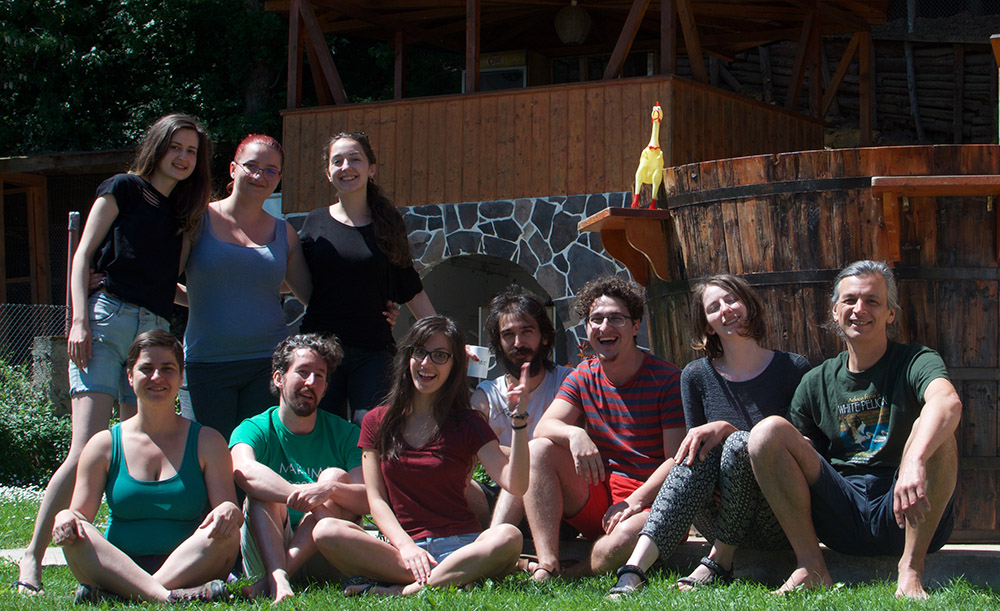
So why did you want to go beyond running events?
Although the events were successful, we saw the need to create a context for learning instead of just socialising. Although we created a warm ‘social bubble’ every month, it didn’t do much to help people nurture happy and fulfilling relationships in the rest of their lives. We knew we could do more.
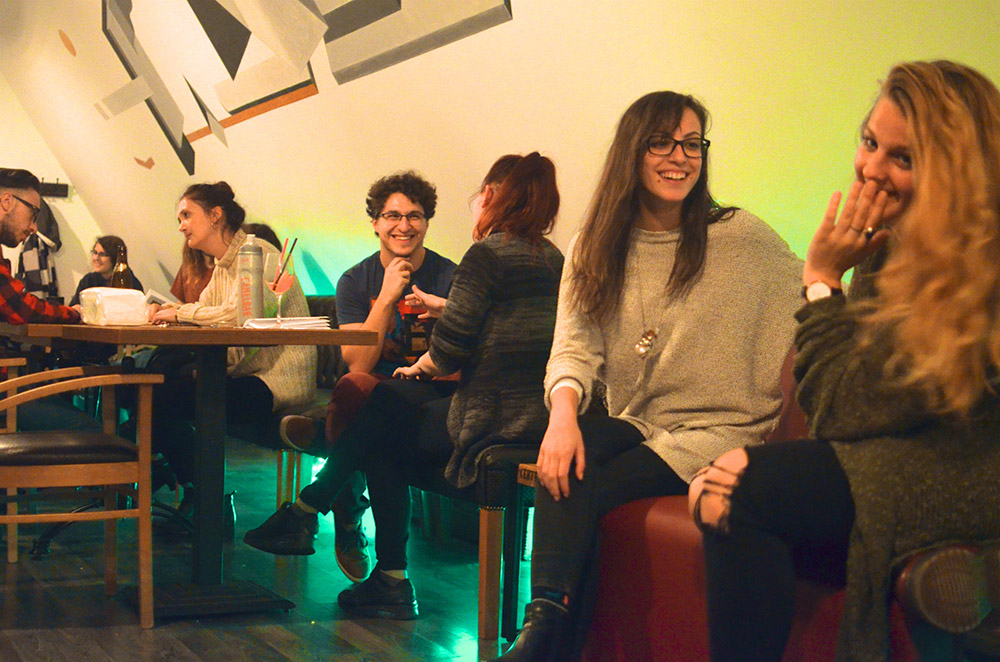
We also wanted to find a way to reach more people across the world. We explored the possibility of training many more facilitators, but we knew that would be a slow process. Instead, we realised that digital technology could help us with both of these challenges, by delivering rich, personalized relationship skills education to people wherever they are – and to as many people as want to engage.

So we shifted our focus from running events to using technology to help people learn social skills and nurture stronger relationships. We began to form a strong startup team around this idea.
Isn’t digital technology the opposite of real human connection?
We knew that embracing digital technology would have its challenges. After all, our incessantly buzzing phones can distract us from the people in front of us, and the impulse to Instagram everything can make it difficult to actually enjoy the moment.
However, technology can be used in many ways and we felt that the potential was too large to ignore. For example, a Makuma app could allow people to deeply connect with anyone, anywhere – whether that’s cuddling with a lover at home or meeting a fascinating stranger in a quiet cafe.

An app can deliver the right knowledge at just the right time, so you can apply it straight away. Video can show things that are hard to explain in writing, and interactive exercises can make you think more deeply about a topic and how it applies to your relationships. Thoughtful design and graphics can give some gentle emotional support to help you through the challenging moments of a relationship.
How did you know what to focus on?
Relationships are complex, and there are many factors that influence how we behave in relationships. Especially in challenging situations, relationships can bring out deeper aspects of our personalities we usually prefer to keep hidden.

Over the years, thousands of books and articles have been written about how to have better relationships, discussing a multitude of challenges and proposing a plethora of solutions. So, where should we start?
To know where to focus, we dived into researching who struggled the most with relationships and what exactly they found most challenging.
We started by conducting 25 interviews to capture a wide range of difficulties that people were having with their social lives. From these interviews we identified 58 specific themes including their fears, desired outcomes, and how they’d like to feel.

To know how common each of these themes were, we conducted an online survey of over 350 people from all the major cities in Romania. After looking at the overall results, we used a statistical analysis to group people together who shared unmet needs in common. We found that the needs clustered more strongly for women, so we chose to focus on the needs of one of the female groups. By looking at only one of the groups that were formed, we got a clear picture of what those people were particularly struggling with. These people became our initial target audience.
What did you find out?
We discovered that our target audience particularly struggles with:
- Feelings of loneliness
- Self acceptance and body image
- Having deep and honest conversations with partners and friends
- Feeling the need for genuine appreciation when it comes to skills and intellect
We could certainly relate to those challenges, as we’ve all faced difficulties with these at one time or another. The good news is that there’s plenty of solid science and helpful techniques that can help anybody learn to overcome their barriers in these areas.

With this knowledge, we ran an experiment placing 440 adverts on a variety of Google search terms we thought our target audience might use, leading to 44 different “offer” pages that we wrote with them in mind. That way, we found out which terms were searched most frequently and which offers were most compelling.
The winning offer was self discovery through counselling and online courses. Nearly everyone who clicked on those adverts were searching for words related to anxiety or social anxiety.
What did you do with the results?

As our first step towards helping people address the relationship needs we discovered in our research, we decided to launch an online counselling service that supports people in helping relationship happiness through self discovery. We know that counselling is a powerful tool to help people overcome their barriers to relationship happiness, so we’re excited to see the results.
What next?
As well as launching the counselling service, we’re also collecting the best activities and educational content to help our target customers learn the skills they need to have happier, healthier relationships. At the same time, we’re developing a web site and mobile app to allow anybody to access these activities – and perhaps even contribute some of their own.

When we have more people using our digital services, we plan to also organise offline gatherings. We’ve got big plans, from an eco-friendly co-living and co-working community to a ‘festival of connection’. By nurturing these strong, trusting relationships, we hope to accelerate our society’s transition to a better, more sustainable world.
In the soil of healthy, compassionate relationships, a thousand flowers will bloom.

